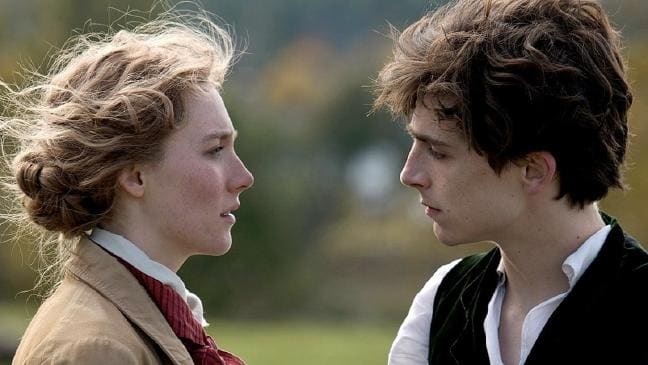
Little Women has become a beloved part of the American literary canon for women over generations. It has inspired countless writers and ordinary girls the world over with its depiction of the transition into womanhood. The latest adaptation is a film from rising star director/actor Greta Gerwig, an adaptation of the classic novel following the lives of the four March sisters, Jo (Saoirse Ronan), Amy (Florence Pugh), Beth (Eliza Scanlen) and Meg (Emma Watson) during the tumultuous American Civil War. The March sisters come of age during the difficult and changing times balancing love, life, and expectations.
With its wartime setting, Little Women makes the point that sacrifice is an action that is emphasized for the girls and impressed upon them almost daily. The female characters are constantly reminded of the sacrifices being made by men away on the battlefield and the need for them to reciprocate in kind on the homefront. This cultural mindset, when combined with the expectations of women of the time to default toward meekness and neglecting their own goals in favor of becoming wives and mothers, makes it inevitable that the young women will be moved to rebel and question the fairness of the weight they are made to carry.This is primarily depicted through Jo and her rejection of her neighbor Laurie (Timothée Chalamet) and her dogged commitment to becoming a published author. Jo is a sort of stand-in for modern women and their resistance to the status quo, deciding to devote their passion toward themselves and their own successes instead of the expectation of being doting wives and mothers. Jo is determined to follow her own path and become an author, bucking against the expectations of family, male suitors, book publishers, and society at large.
The pushback she receives and the barriers she must overcome in order to be taken seriously as a fully autonomous and professionally capable women mirror the same disadvantages that women face today, as is her struggle to balance her desire for success with the innate human need for non-platonic companionship. Much has been written and said about dating as a career woman with many neglecting romantic pursuits because of an underlying belief that striking a balance between professional achievement and companionship is impossible. We see this struggle play out through Jo’s rejection of Laurie, with Jo having to eventually admit to herself that her rejection of male suitors is not a reflection of her true desires once Laurie moves on and once she eventually has a second chance at finding love with Fredrich Bhaer (Louis Garrel). Her struggle with love and ambition will be one many modern female viewers will be able to relate to. The debate over whether women “can have it all” can put an unfair burden on women to strike a balance between family time and work that men are not forced to confront. It doesn’t have to be an either or choice and making it one forces women to neglect a part of themselves, whether it be professional fulfillment or the need to love and be loved, unnecessarily and unfairly.
Despite the above underlying theme of the film, there was one moment that made me to ponder whether it was the expectation of being shackled to a man that Jo resented or was it the loss of unfettered independence, free of consequence and responsibility that is childhood which she wanted to hold on to. The thought surfaced as Jo pleaded with Meg to not get married and instead run away with her, her thoughts potentially betraying her when she declared that she couldn’t believe childhood was over. Growing up is hard to do as the saying go and for sisters who are as close as the March girls are, everyone going their separate ways and crafting lives of their own can be a daunting next step when you’re used to always having your siblings around.
Little Women is a high quality production that attempts to explore timely questions about the present through a timeless novel representing the past. Greta Gerwig displays her directorial talent in crafting a narrative that easy to follow and well-paced, yet feels inventive and creative through her use of non-linear storytelling.` Gerwig even cleverly employs some visual storytelling, such as depicting Aunt March (Meryl Streep) as always dressed in dark colors, indicative of the rigid, stifling philosophies she attempts to force onto the girls. The ensemble cast is a who’s who of young and old Hollywood and none disappoint, displaying the acting talent that have made them household names and rising stars. In totality, Little Women is a pretty good film with very good thematic depth, but not enough new to transcend into greatness. That sentence isn’t a knock on the film or a criticism, quite the contrary, but in a culture where films (and things in general) are either crowned the best thing ever or the worst thing to happen to the world, it seems many need a reminder that in actuality, most things are just “fine.” Even before its release, Little Women has become a topic of heated debate on the number of eyeballs committed to watching it and whether or not it is receiving the praise it deserves. In reality, the film is good adaptation of a piece of art that has been adapted for the big and small screens and stage over ten times and a good time in theaters. And that’s just fine.
Image: Columbia Pictures

